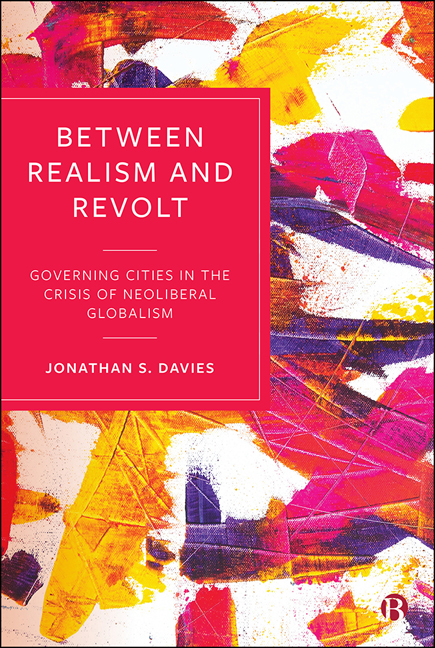Book contents
- Frontmatter
- Dedication
- Contents
- List of Tables
- Contributing Investigators
- Acknowledgements
- Preface
- Introduction
- 1 Studying Urban Political (Dis)Orders
- 2 Dynamics of Crisis, Neoliberalisation and Austerity
- 3 Austerity and State Rescaling
- 4 Consolidating Neoliberal Austerity Regimes
- 5 Regime Divergence and the Limits of Austere Neoliberalism
- 6 Resisting Austerity: Resonant Solidarities and Small Wins
- 7 The ‘Activity of Ruling Groups’: Containment, De-mobilisation and Fragmentation
- 8 Reading the Conjuncture: (Dis)Ordering Dynamics in the Crises of Neoliberal Globalism
- Afterword: Into the Pandemic
- Notes
- References
- Index
Afterword: Into the Pandemic
Published online by Cambridge University Press: 05 January 2022
- Frontmatter
- Dedication
- Contents
- List of Tables
- Contributing Investigators
- Acknowledgements
- Preface
- Introduction
- 1 Studying Urban Political (Dis)Orders
- 2 Dynamics of Crisis, Neoliberalisation and Austerity
- 3 Austerity and State Rescaling
- 4 Consolidating Neoliberal Austerity Regimes
- 5 Regime Divergence and the Limits of Austere Neoliberalism
- 6 Resisting Austerity: Resonant Solidarities and Small Wins
- 7 The ‘Activity of Ruling Groups’: Containment, De-mobilisation and Fragmentation
- 8 Reading the Conjuncture: (Dis)Ordering Dynamics in the Crises of Neoliberal Globalism
- Afterword: Into the Pandemic
- Notes
- References
- Index
Summary
It is difficult to write with confidence about the political implications of COVID-19, only a few months into the Anglo-European phase of what could be a very prolonged and multi-faceted crisis, even if the immediate public health crises are resolved relatively quickly. As the preface explains, I decided against retrofitting the text, and for this reason terms populating the pre-COVID manuscript such as ‘socio-spatial distancing’ and ‘contagious’ have been left as they were, despite taking on very different and potentially upsetting meanings in the pandemic.
To echo the conclusions reached in Chapter 8, it does seem that for the time being the overtly austere and globalist faces of neoliberalism are in abeyance; now even more so (Standring and Davies, 2020). Corporate bailouts, crony contracts and other forms of ‘socialism for the rich’ show that powerful neoliberal forces persist, but as of Autumn 2020 austerity has given way to massive state spending and subsidies to workers that would not long ago have been deemed irresponsible, generative of moral turpitude, or even impossible. The ideologies of capitalist ‘globalisation’ are in tatters, while the virus poses no less of a challenge to left internationalism and the defence of global mobility rights. The signs, moreover, are that COVID-19 is unleashing economic and social crises that could dwarf those of the GEC. Struggles over the narration, management and resolution of those crises have the potential to be immense, prolonged and brutal, but also transformative. Those who see recession/depression as an opportunity to radicalise austere neoliberalism, particularly in its neo-reactionary and passive-revolutionary forms, remain well-positioned within the Euro-American states system. However, with the case for state spending, borrowing, tax rises and worker subsidies now disinterred and many governments openly, if expediently, repudiating austerity, they could struggle to dominate ideas and common-sense to the extent they did after the GEC. The age of austerity and the struggles over governability captured in this volume can therefore be read as a great rehearsal. The book is likely to be a prequel to what lies ahead for cities, in an even more intense form than before: the possibility of further draconian austerity albeit within a different discursive frame, harsher state authoritarianism and possible urban dereliction, but also more intense, urgent and inventive struggles to ensure that things turn out differently this time.
- Type
- Chapter
- Information
- Between Realism and RevoltGoverning Cities in the Crisis of Neoliberal Globalism, pp. 207 - 214Publisher: Bristol University PressPrint publication year: 2021

